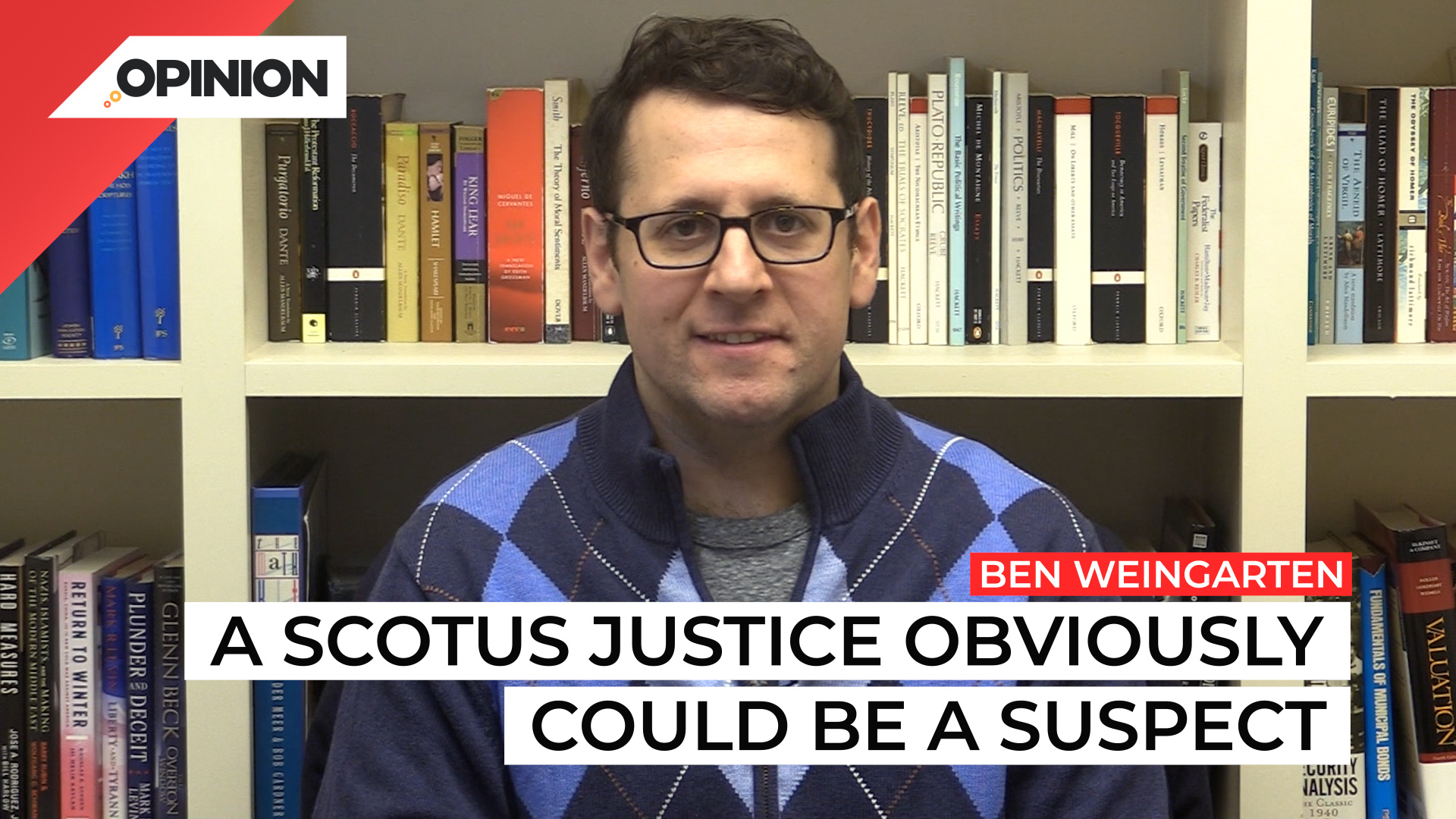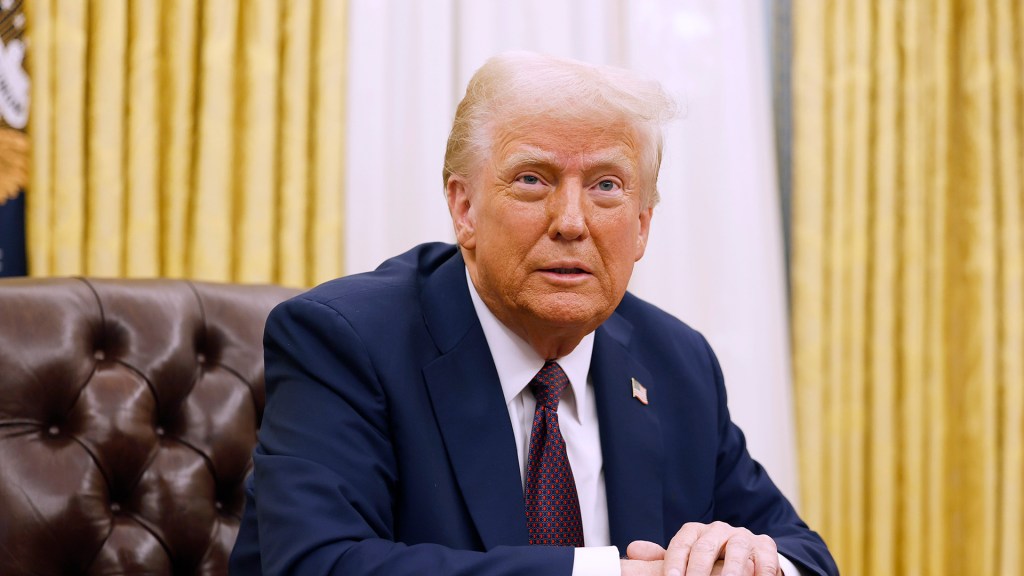
Commentary
-
Our commentary partners will help you reach your own conclusions on complex topics.
Last summer, the American system of government suffered a grave assault when someone leaked the draft of the Dobbs Supreme Court opinion that would ultimately prevail, overturning Roe v. Wade. The assault threatened the deliberative process on which the court relies, led to illegal protests outside the homes of justices likely to shoot down Roe, aimed at intimidating them into deciding the way the pro-abortion mob wanted, and culminated in an assassination plot against Justice Brett Kavanaugh.
At the time, Chief Justice John Roberts said that the act was a “singular and egregious breach” and a …“betrayal of the confidences of the court.” And he ordered an investigation.
Two months in, with no update on the Dobbs leaker to speak of, we were highly critical of the court, dumbfounded it selected its Marshal to lead the investigation. It’s not clear why the Marshal was equipped to run the probe, and skeptical of the probe’s thoroughness.
Now eight months later, the verdict is in, and our concerns would seem to have been more than vindicated.
The Supreme Court found no leaker. It wrote in an unsigned statement that after interviewing almost 100 employees, 82 of whom accessed the opinion, the court marshal’s team was “unable to identify a person responsibly by a preponderance of the evidence.” The court shared the marshal’s findings and recommendations, which contained some remarkable qualifying language, noting for example about the idea that an employee could’ve emailed the opinion to a non-employee: “Technical limitations in the Court’s computer recordkeeping at the time made it impossible to rule out this possibility entirely.”
Also there is a line like this:
“The investigators did not find any logs or IT artifacts indicating that the draft opinion was downloaded to removable media, but it is impossible to rule out.”
“Impossible to rule out” doesn’t cut it. The report also said this:
“The pandemic and resulting expansion of the ability to work from home…created an environment where it was too easy to remove sensitive information from the building and the Court’s IT networks…”
Ah, so it was the pandemic. That’s the alibi they’re running with?
Similarly unacceptable is that the report didn’t specify whether the judges themselves were interviewed.
Amid a firestorm over that omission, the marshal was quick to issue a press release the day after the report dropped, detailing that she had spoken to each justice, some multiple times. Curley said, “asking questions and answering mine.”
Justices should absolutely be treated with due respect, but what is this oddly deferential iterative process?
A justice obviously could be a suspect. Yet the Marshal concluded that “credible leads” did not “implicate[] the Justices or their spouses. On this basis, I did not believe that it was necessary to ask the Justices to sign sworn affidavits.”
Even the Washington Post asked basic glaring questions, like: Did investigators subject justices to the same “formal interviews” as the 126 given to some 97 court employees who did sign sworn afidavits?
Did investigators look at available legal research history of the justices – as they did other employees – to see if the justices had looked into the legality of leaking?
Did investigators collect justices’ court-issued laptops and phones, and look into related records to deduce whether they might’ve been involved with the leak, as they did other employees? If the answer to all of these was “No,” again, how could anyone believe this was a legitimate investigation?
How can you have a legitimate investigation when you have a double standard in how you treat the suspects?
For the cherry on top, the court got a former DHS secretary who had intimated that the Hunter Biden laptop was likely Russian disinformation, to rubber stamp the probe.
So confidence-inspiring.
Here’s the bottom line:
Absent a hack, which investigators also claim likely didn’t occur here but they couldn’t definitively say so, there’s a limited universe of people who had access to the opinion and motive to leak it. Whoever the leaker was may have done irrevocable damage to the Court. A justice could’ve gotten killed.
The only way you could possibly get close to restoring order, restoring sanctity of the court, is to go to the end of the Earth using every available means find the leaker, bring him or her to swift and overwhelming justice, and do so publicly as a deterrent to any such future behavior. On top of implementing the strictest protocols going forward and making such leaks illegal with massive penalties to stop would-be leakers from daring to do so again.
The Court did not do that here. If you were trying NOT to figure out who the leaker was, while giving the appearance you cared, what would you do differently? You’re telling me if the FBI had been assigned the case instead of the marshal, and pursued it as zealously as it pursues nonviolent January 6 defendants, that we wouldn’t know who the leaker was, probably months ago? Ironically, the Chief Justice who claims to care most about protecting the institution –
a justification for siding with the court’s leftists on politically sensitive matters, or coming to very narrow and “incremental” decisions when he sides with the court’s conservatives, prioritizing the politics over the merits –
has now further undermined the institution with this failed probe. We don’t know if this failure comes from a lack of will, or a lack of capability; whether the failure is rooted in incompetence, or corruption.
Either way, it’s a Supreme disgrace.
-
No, Trump is not causing a constitional crisis
Since returning to office, President Trump has signed a long list of executive orders, drawing strong reactions from both sides of the political spectrum. Many on the Left worry about the country’s changing direction, while many on the Right praise his speed and commitment to campaign promises. Some of these orders, however, are now tied… -
Humphrey’s Executor should be slated for execution
President Trump’s attempts to purge and downsize the federal workforce across myriad agencies and departments have been met with swift legal challenges. An array of judges have already issued preliminary injunctions, restraining orders and others rulings against the administration’s actions. Much of that pushback comes from the fact that the laws governing these agencies have… -
Gabbard, Patel key appointees in fight against Deep State
As President Donald Trump’s cabinet picks continue to be confirmed, two nominees have emerged as particularly divisive. The U.S. Senate confirmed former Hawaii Congresswoman Tulsi Gabbard as the eighth Director of National Intelligence (DNI), while the Senate Judiciary Committee recently voted along party lines to advance Kash Patel’s nomination as FBI director. Both nominations have… -
Trump, Musk are right to terminate woke USAID
Elon Musk came under heavy public criticism after he abruptly and unexpectedly terminated USAID, the United States Agency for International Development. Experts said that the swift termination puts millions of lives in immediate danger around the world, jeopardizes American national security interests at home and abroad and also threatens the integrity of the U.S. domestic… -
Trump is right, Palestinians must be relocated out of Gaza
On Saturday, Feb. 1, U.S. President Trump spoke with Egyptian President Abdul Fatah el-Sisi, urging him and Jordan’s King Abdullah II to accept at least 1.5 million Palestinian survivors of the war in Gaza. Critics have attacked the proposal as tantamount to forced displacement and ethnic cleansing — Donald Trump, in his own words, suggested…
Latest Opinions
-
 Getty Images
Getty Images
Sexual violence used as war tactic against Sudanese children: UNICEF
-
 Getty Images
Getty Images
Trump praises BlackRock for $19 billion Panama Canal investment
-
 Getty Images
Getty Images
President Trump announces arrest of Kabul airport bombing suspect
-
 Getty Images
Getty Images
Supreme Court requires Trump admin to pay $2B in frozen foreign aid
-
 Getty Images
Getty Images
US State Dept. reestablishes Houthis as ‘foreign terrorist organization’
Popular Opinions
-
In addition to the facts, we believe it’s vital to hear perspectives from all sides of the political spectrum.






